Japan focused on hydrogen fuel
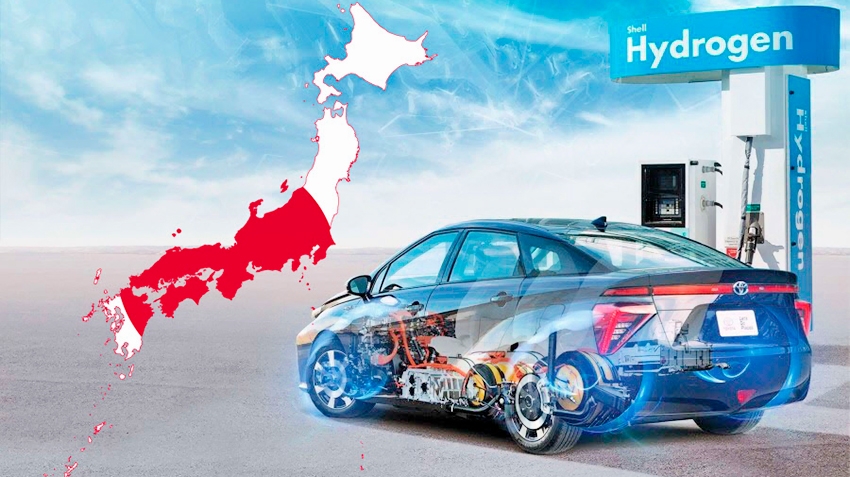
5 July 2019
At the G20 summit in Osaka Japan presented its plans to introduce hydrogen on autotrasporti
Held in late June 14th the G20 summit in Osaka in addition to other global challenges, was discussed and priority issues of environment and energy. Japan as the host of the conference, it was also flattering to show off your considerable and unique achievements in this field.
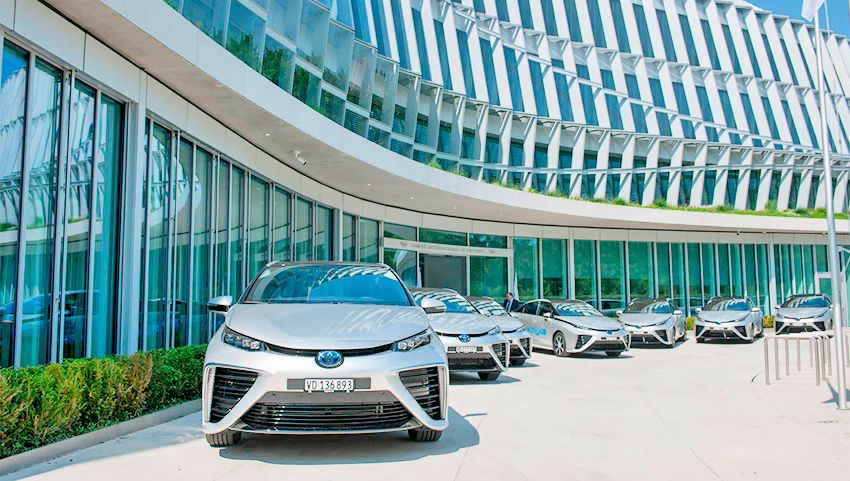
Park the Toyota Mirai will serve the IOC at the XXXII Summer Olympic games in 2020 in Tokyo
So, for today Japan has the highest number of patents in the field of hydrogen energy, especially, this stands out Toyota, which has extensive experience in these technologies.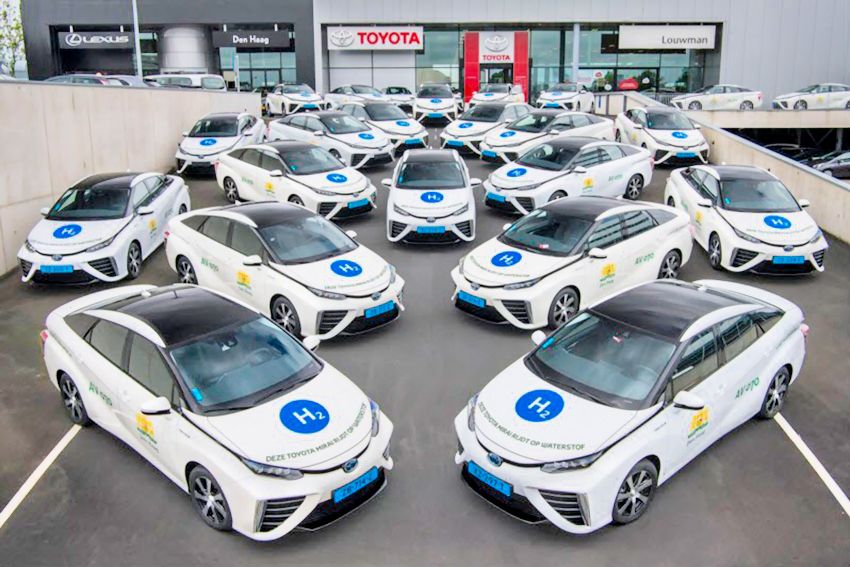
That is Toyota Motor the world's first started producing electric cars with hydrogen fuel cells (FCEV)
Serial cars sedan Mirai (Japanese "future") has onboard equipment (Globacom and fuel cells) to convert liquid hydrogen into electricity, releasing only harmless water vapor, and positioning the reserve as a regular vehicle and can operate it for regular users (of course if predali reach hydrogen refueling – ed.). "Hydrogen fuel cell" (Fuel Cell) Toyota design has become in Japan a "Mature technology", and though worth at least ¥460 000 (₽271 thousand), but many consumers, this price is quite satisfied.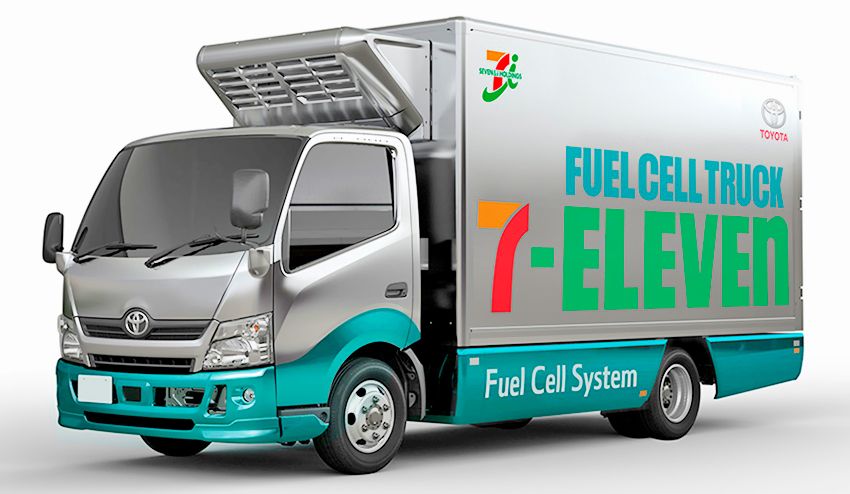
Hydrogen delivery truck Toyoya will work in a logistics network retailer 7-Eleven
To increase the use of hydrogen fuel, Toyota also built a truck based on fuel cells for distribution of goods in the international Japanese-American trade network 7-Eleven ("7-11") on Japanese territory, including part of the chain's stores in Tokyo. In Japan there are about 20.7 thousand 7-Eleven convenience store walking distance (of which 2.7 thousand in Tokyo), and it stores the necessary fleet of 5.8 thousand trucks to provide logistics services to ensure the normal operation of the trading network.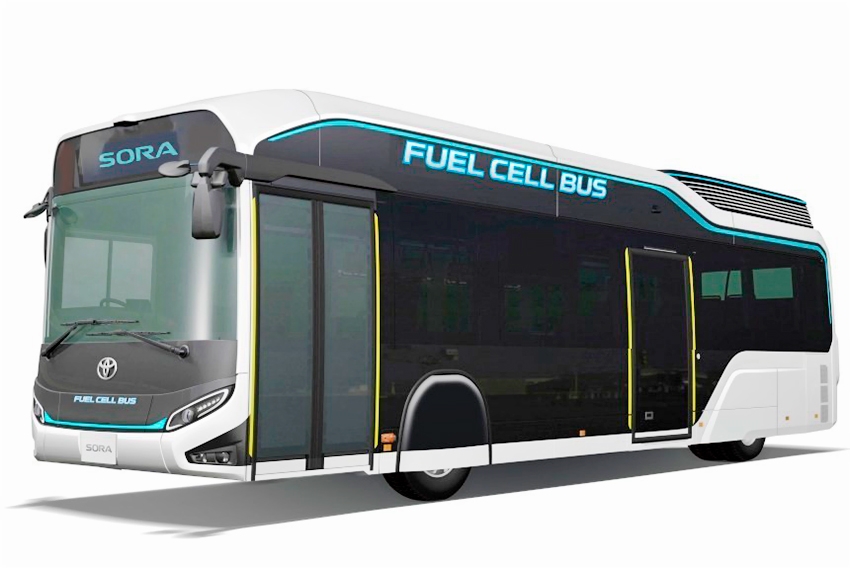
Hydrogen minibus Toyota Sora will serve the XXXII Summer Olympic games 2020 in Tokyo
in Addition to the cooperation with a retailer 7-Eleven, Toyota began last year to sell in Japan buses (electric buses) with fuel cells. According to reports, Toyota has reached agreement with the Tokyo transport Bureau, which plans to put 100 electric buses on hydrogen fuel to service the XXXII Olympic Summer games and XVI Paralympic games in Tokyo in 2020. By the way according to the site fuelcellsworks.com by this time, the network of hydrogen filling stations in Japan will reach 160, and by 2026 this number will be doubled. By this time Park the vehicle on hydrogen according to the plan of the Japanese government will reach 200 thousand.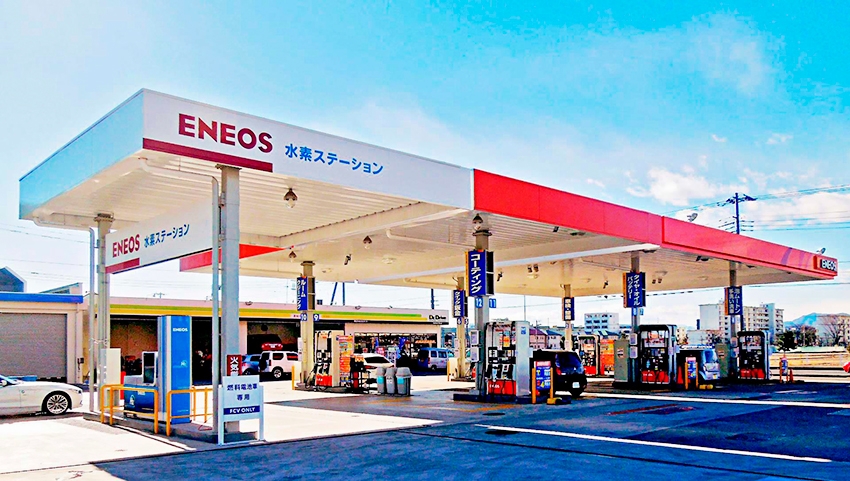
Meanwhile, according to open information currently in Japan on hydrogen operated about 4 thousand vehicles, and their refueling deployed a network of more than 100 hydrogen fueling stations.
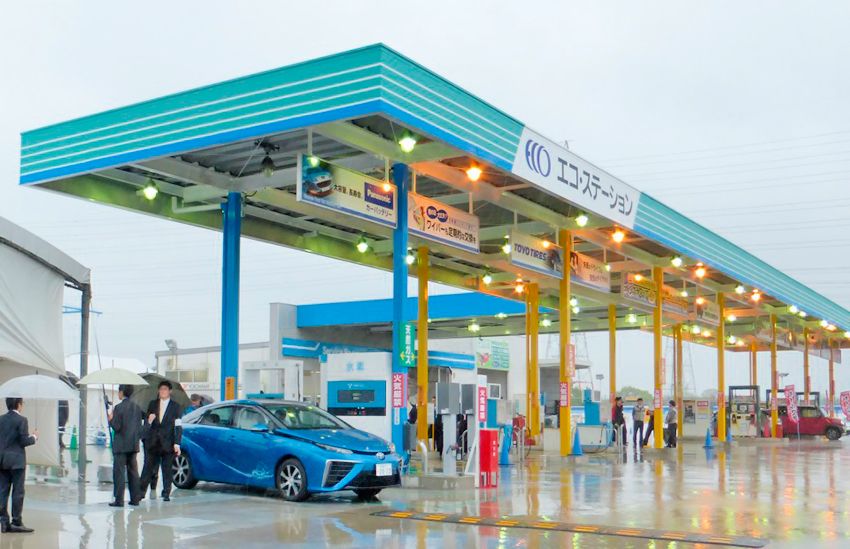
From a report by CCTV, it follows that station for refueling the vehicle with hydrogen in complexity is not much different from the usual filling stations with gasoline and diesel, and its staff need to pass only a single-stage training.
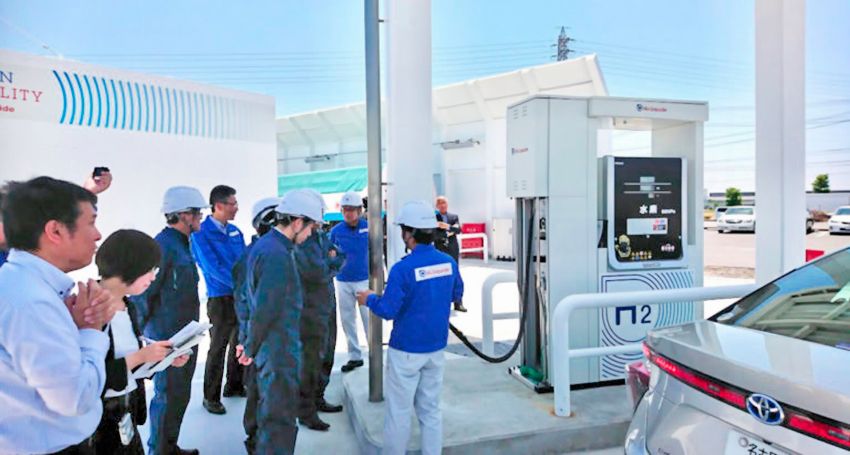
Refueling a hydrogen car takes place through the pipes and hoses while filling 5 kg of hydrogen fuel takes about 3 minutes, price filling one of the tank-container is about ¥400 (about ₽235), and the distance that can be overcome is about 600 kilometers.
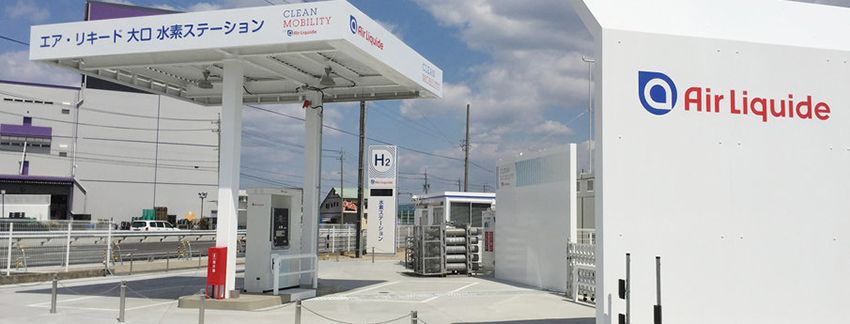
However, the current operating costs for hydrogen fueling stations at present depend mainly on government subsidies. It is difficult to provide self-sustaining, relying on revenues from refillable hydrogen fuel vehicles in the amount of less than 10 units. a day. Employees of such hydrogen stations, said that to achieve profitability they need every day to sell at least 200 kg of hydrogen fuel, which is equivalent to filling 60 units of the Mirai FCEV type.
Japan has worked hard to improve the technological chain of hydrogen energy, trying to overcome the energy dilemma (the costly production of H2) and to obtain long-term benefits.
At the G20 meeting, the Japanese government also clarified specific goal: by 2025, on the road will be 200 000 fuel cell vehicles, and by 2030 - up to 800 000 and the network of fuel supply includes 900 gidrogenizatsii. According to official estimates, by 2030 the domestic market of hydrogen energy Japan will reach ¥1 trillion ($9.2 billion), and by 2050 its volume will increase to ¥8 trillion ($73,7 billion, or 512 billion yuan), equivalent to 40% of annual Japanese imports.
Japanese territory consists of Islands. It's relatively small size, mountainous and densely populated and therefore not suitable for large scale production of alternative energy. After the accident at NPP "Fukushima-the accident" in 2011, Japan's interest in the nuclear energy plummeted. The face of a national energy crisis in Japan, it seems, is forced to choose hydrogen as the only option..
|
|
|
Element was not found.








